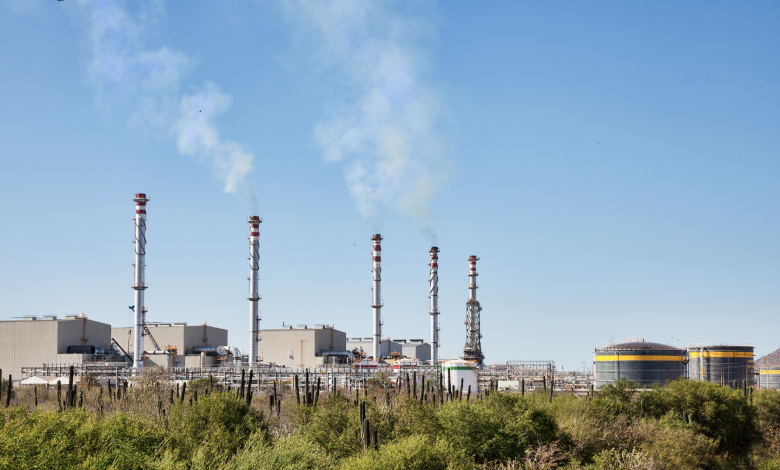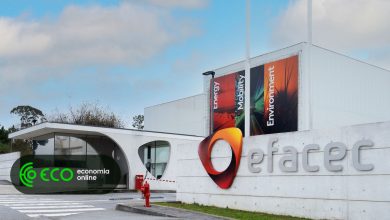
THERMAL POWER PLANTS – REDUCE YOUR ENVIRONMENTAL IMPACT AND OPTIMISE YOUR OPERATIONAL COSTS WITH MOBILE REVERSE OSMOSIS
While high water quality is essential for power generation, plant operators are also increasingly looking at ways to optimise the use of water in steam and cooling cycles in thermal power plants. However, implementing new technologies can present challenges, such as disruption to plant operations and significant expenditure. Here, Pedro Paixao of Mobile Water Services (MWS) looks at how the use of mobile Reverse Osmosis (RO) assets upstream of operators’ demineralisation plants can help streamline the implementation process and minimise issues, get around the worsening shortage of chemical supply, and significantly reduce the environmental impact.
When it comes to industrial applications such as high-pressure boilers and cooling systems, water purity is of fundamental importance to plant efficiency and also to keep waste and operational costs down. There are many methods for achieving purified water. One popular option is Reverse Osmosis (RO). This method uses a semi-permeable membrane to separate up to 95 to 98% of the dissolved solids and particles from a water supply. The feedwater enters the membrane under pressure and the water molecules pass through, while the contaminants are captured and discharged to drain.
Compared to alternative methods, RO has many advantages. First of all, it requires limited consumption of chemicals (low rate injection of antiscalant and chemicals for infrequent “Cleaning in Place” operations for the membranes). Not only does this simplify the operation and keep costs down, but it also provides a safer working environment. Furthermore, a RO system requires limited regular maintenance, because it is considered a self-cleaning process. Consequently, minimal operator interaction is required, which allows workers more time to commit themselves to other tasks.
A RO system has specific benefits for both the operation of high-pressure boilers for steam production, as well as for cooling water applications, especially when used upstream of a demineralisation plant.
Benefits to the boiler
Firstly, by providing purified water, a RO unit ensures that boiler efficiency is optimised. This is because water impurities cause scaling and corrosion, which negatively impact the performance and lifespan of the entire system. Through the implementation of RO, these problems can be avoided.
Utilising a RO unit and then Ion Exchange (IEX) also allows for fewer boiler blowdowns as the system ensures that the water within the boiler is of high quality with a very low concentration of impurities such as organic compounds and silica. As such, the necessity of diluting the impurities is avoided and boiler operation efficiency is improved. Consequently, both freshwater usage and wastewater production is minimised, and operational costs are significantly reduced.
Benefits to the cooling system
The RO before IEX also confers many benefits to the wider cooling system. Firstly, following treatment using RO, conductivity and salt levels are reduced. This means that after treatment, the water can be reused and circulated through the cooling cycle for longer. Additionally, the circulating water is cleaner, meaning fewer cooling tower cleans are required, leading to lower costs, minimising the risk of legionella and ensuring a safer working environment is maintained. It also guarantees that a vast amount of inlet water is saved, optimising the system’s water footprint. Plus, less wastewater is discharged, thereby reducing the impact on the local environment.
How Mobile Water Services can help
To avoid disruption and optimise the use of water in steam and cooling cycles, new treatment processes must be implemented and managed carefully. Our Mobile Water Services team can help by providing mobile RO assets for long-term use, through our Multi-Years contracts, or for a short-term mobilisation (simple trial or temporary response to a chemicals shortage event for example) assets.
Our client commissioned Mobile Water Services for a 6 month trial at their power plant in Germany. A mobile reverse osmosis asset (MORO 4 x 25T) was set up ahead of the demin plant producing water for the high-pressure boiler. During the pilot period, the site operators noticed a significant reduction in the number of regenerations of the demin resins required. In addition, the consumption of chemicals was reduced and therefore the associated H&S risks of the process on-site and also energy savings. Projections over a longer-term period highlighted the additional optimisation of the resin consumption and the life of the resins is expected to increase from 3 years to 8 years if the reverse osmosis process continues.
Our mobile units incorporate the latest technology to achieve reliable performance and can supply flow rates from 5m3 per hour to 1,000m3 per hour. They are available as modular or standard systems in pre-packaged containers or trailers for maximum mobility and rapid response. The modular system allows any combination of process technologies to create a complete solution that meets the needs of any application. The mobile assets are designed with ‘plug-and-play’ connections that can be used immediately. In addition to RO, MWS provides other water purification services, including deionisation, filtration, ultrafiltration, and water softening.
Piloting RO using these mobile assets allows plant operators to implement and test the technology without committing to installing the system permanently.
Furthermore, the MWS team can both set up and pack down the mobile RO units without disrupting plant activities. Long term rentals are also an option for operators who may want a flexible solution. In many cases, the mobile water treatment services have been extended for several years, avoiding the need for investment in a fixed plant.
In 2021, a customer experienced some issues with the delivery of chemicals needed for the regeneration of their demineralisation streets, mostly due to a shortage of hydrochloride acid (HCl). The customer initially managed to find an internal solution and receive a delivery at the last minute. However, in late 2021, the customer was running out of options and was looking for a sustainable alternative. To extend the time between two regenerations and thus save chemicals, they contracted Mobile Water Services for the provision of two mobile Reverse Osmosis (MORO 4x25T) to be installed upstream and feed their denim streets with up to 200 m3/hr of RO permeate. The time in between two regenerations increased tenfold and the customer was able to save a corresponding amount of chemicals. After 1.5 months they decided to extend the mobilisation of the asset to the end of 2022 with the option to extend for one more year.
Overall, utilising Mobile Water Services has many benefits for plant operators. By utilising mobile assets, plant operators can test these benefits using the best available technology, in a way that does not impede plant activity. By introducing improved treatment processes, costs are reduced and chemical usage is optimised. In addition, local issues of water scarcity can be alleviated as less water is required for plant operations.
Those that contact Mobile Water Services will receive a fast response and reliable delivery time, as well as full technical and operational support throughout the rental period.
For more information about Mobile Water Services, please visit:
https://www.mobilewaterservices.com/





